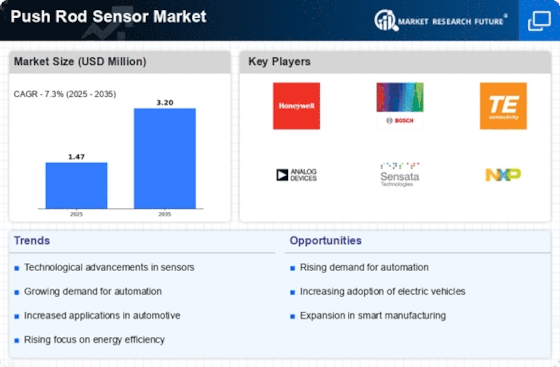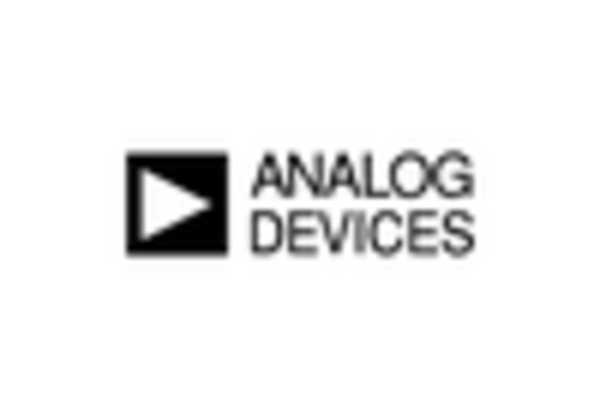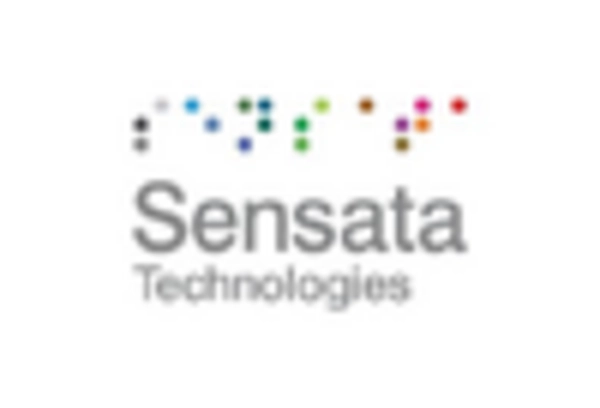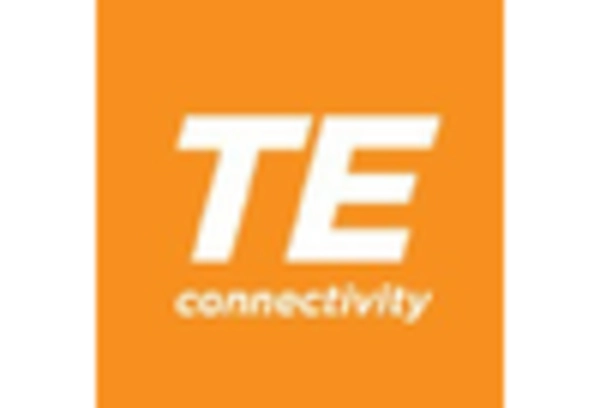Market Share
Push Rod Sensor Market Share Analysis
Market share positioning strategies are pivotal in determining the success and standing of companies within the Push Rod Sensor Market. One predominant strategy involves differentiation, where companies aim to set their products apart from competitors by offering unique features, better performance, or superior quality. This approach allows companies to build a distinct brand image and attract customers who value the specific attributes of their push rod sensors. Another essential strategy is cost leadership, where companies focus on becoming the low-cost provider in the market. This involves optimizing production processes, achieving economies of scale, and ultimately offering push rod sensors at competitive prices. Cost leadership can be particularly effective in price-sensitive markets, attracting budget-conscious consumers and gaining a larger market share.
Furthermore, innovation plays a crucial role in market share positioning within the push rod sensor industry. Companies that invest in research and development to introduce cutting-edge technologies or improvements in sensor performance can gain a competitive edge. Innovations may include enhanced accuracy, increased sensitivity, or the development of sensors suitable for new applications. By staying at the forefront of technological advancements, companies position themselves as industry leaders, attracting customers seeking state-of-the-art solutions.
Strategic partnerships and collaborations are also integral in market share positioning. By forming alliances with key players in related industries or establishing partnerships with distributors and suppliers, companies can expand their reach and access new markets. This not only facilitates increased sales but also strengthens the company's overall position in the push rod sensor market. Collaborations can lead to synergies, allowing companies to leverage complementary strengths and resources.
Market segmentation is another strategy employed by companies to enhance their market share positioning. By identifying specific customer segments with unique needs and preferences, companies can tailor their push rod sensor offerings to meet these requirements effectively. This targeted approach enables companies to capture a larger share of niche markets and build a loyal customer base. Customization of products and services based on the distinct demands of different industries or applications is a key element in successful market segmentation strategies.
Geographic expansion is a vital strategy for companies aiming to increase their market share in the push rod sensor industry. This involves entering new regions or countries where there is untapped potential. Adapting products to suit regional preferences, complying with local regulations, and establishing a strong distribution network are crucial steps in successful geographic expansion. By reaching diverse markets, companies can mitigate risks associated with dependency on specific regions and tap into emerging opportunities.
Customer-centric strategies are essential for building and retaining market share. Companies that prioritize customer satisfaction, provide excellent post-sales support, and actively seek feedback can create a positive reputation in the market. Satisfied customers are more likely to become repeat buyers and advocates, contributing to the company's overall market share growth. Additionally, implementing effective marketing and promotional strategies that highlight the unique value propositions of push rod sensors can increase brand visibility and attract a larger customer base.
















Leave a Comment